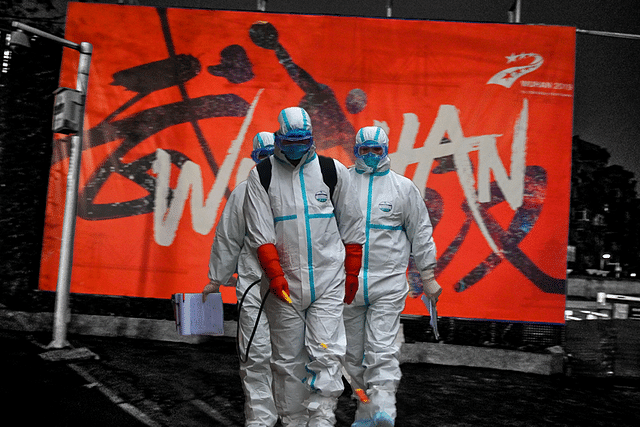
With Death Toll Mounting To 213, WHO Declares Coronavirus Outbreak As International Health Emergency
The novel Coronavirus outbreak, that originated from China and has spread to around 18 countrie,s has been declared as an International Public Health Emergency (PHEIC) by the World Health Organisation (WHO) on Friday (31 January), reports Hindustan Times.
However, the Geneva-based organisation have not recommended any travel or trade restrictions on China.
The declaration comes as the death toll across China due to the Coronavirus outbreak reached 213, with at least 42 new deaths reported from the most affected Central Chinese province of Hubei.
Over 9,600 case of infection has been reported in China as of Thursday (30 January), Chinese health authorities have said.
About 100 cases have been reported in at least 18 other countries, with no deaths outside China.
The WHO’s Director General Tedros Adhanom Ghebreyesus declared the outbreak as a “Public Health Emergency of International Concern” (PHEIC) after a closed-door meeting of its emergency panel in Geneva.
According to the report, it is only the sixth time that the WHO has declared a PHEIC since the International Health Regulations (IHR) mechanism was set up in 2005.
What does the declaration mean?
The WHO defines it as “an extraordinary event which is determined, as provided in these Regulations: to constitute a public health risk to other States through the international spread of disease; and to potentially require a coordinated international response”.
It further explained: “This definition implies a situation that: is serious, unusual or unexpected; carries implications for public health beyond the affected State’s national border; and may require immediate international action”.
Since that framework was defined in 2005—two years after the severe acute respiratory syndrome (SARS) epidemic spread through China—it has been used only six times: for outbreaks of “swine flu” in 2009, polio in 2014, Ebola in 2014 and in 2019, Zika virus in 2016.
The international emergency designation of a disease is meant to mobilise international response and resources to tackle an outbreak, the WHO said.
It’s an opportunity for the WHO, with guidance from its International Health Regulations Emergency Committee, to implement “non-binding but practically & politically significant measures that can address travel, trade, quarantine, screening, treatment. WHO can also set global standards of practice,” the organisation tweeted.
“The speed with which China detected the outbreak, isolated the virus, sequenced the genome and shared it with WHO and the world are very impressive, and beyond words. So is China’s commitment to transparency and to supporting other countries,” Tedros was quoted as saying at the press conference by China’s official news agency, Xinhua.
“In many ways, China is actually setting a new standard for outbreak response,” he added.